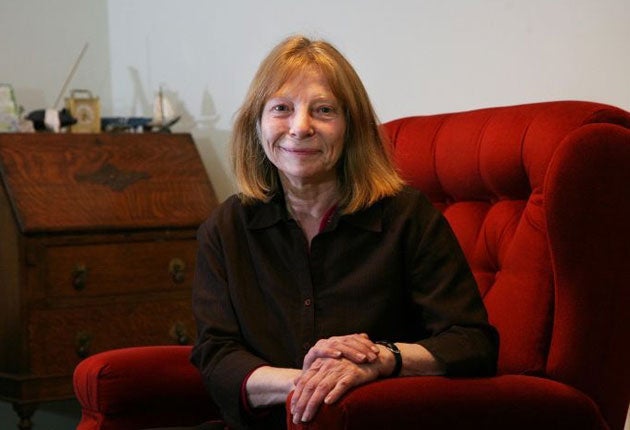Nurses unfairly blacklisted, law lords rule
NHS staff banned from working can claim millions after abuse allegations

Your support helps us to tell the story
From reproductive rights to climate change to Big Tech, The Independent is on the ground when the story is developing. Whether it's investigating the financials of Elon Musk's pro-Trump PAC or producing our latest documentary, 'The A Word', which shines a light on the American women fighting for reproductive rights, we know how important it is to parse out the facts from the messaging.
At such a critical moment in US history, we need reporters on the ground. Your donation allows us to keep sending journalists to speak to both sides of the story.
The Independent is trusted by Americans across the entire political spectrum. And unlike many other quality news outlets, we choose not to lock Americans out of our reporting and analysis with paywalls. We believe quality journalism should be available to everyone, paid for by those who can afford it.
Your support makes all the difference.Thousands of nurses banned from working following accusations that they harmed vulnerable adults are poised to win compensation worth millions of pounds after the law lords ruled yesterday that they were unfairly treated.
Some nurses lost their homes as well as their livelihoods after being blacklisted while awaiting investigation of accusations based on the flimsiest evidence.
One male nurse accused of rape by a woman with learning disabilities was excluded from the care system, without pay, for 15 months until an inquiry showed the accusation to be baseless.
Yesterday's unanimous ruling by five law lords has left the Department of Health (DoH) facing a potential bill of £100m to compensate nurses who lost earnings and suffered stress and damage to their career prospects as a result of the false allegations, according to the Royal College of Nursing (RCN).
The college said more than 5,000 nurses had been placed on a provisional blacklist, known as the Protection of Vulnerable Adults list, since the procedure was introduced in 2004 which had resulted in immediate exclusion from the workplace, without pay, and a wait of up to a year or more before the case against them could be heard.
In a test case involving four nurses, the House of Lords ruled that the practice of placing nurses on the list, before they had had their cases heard, was unfair and incompatible with human rights law. It upheld an earlier court ruling in 2006, against an appeal by the DoH, which had argued that immediate exclusion from the care system following an accusation was necessary for the protection of the public.
Dr Peter Carter, chief executive of the RCN, said: "I am delighted the highest court in the land has upheld the principle that care workers have a right to have their side of the story heard before losing their livelihoods.
"Public and patient safety is always paramount and there should be a mechanism to protect vulnerable people when they are in the care of nurses and care workers. However, these mechanisms must be simple, understandable and above all fair."
Helen Caulfield, the RCN's legal adviser, said that two nurses working in a care home in Exeter were placed on the blacklist, which meant they were unable to work, after allegations were made against them by their manager. An employment tribunal later concluded that the allegations were false and malicious. She added: "Around 90 nurses and care workers a month were listed and on the basis that they were under investigation for a year and earned on average £20,000, I estimate that compensation could amount to £100m."
A spokesperson for the DoH said: yesterday: "The department is considering this judgment."
Wrongly accused: 'I was unable to work for almost six years'
June Wright found herself on the Protection of Vulnerable Adults blacklist in 2005, after allegations were made against her by the former owners of the nursing home in Banbury, Oxfordshire, where she had worked for almost five years.
"They accused me of handling patients roughly, causing bruising, and said the patients screamed when I came on shift. There was no truth in any of it."
With Mary Quinn, she was one of the four nurses who won their case before the law lords yesterday. The allegations against her were investigated by the Nursing and Midwifery Council, which dismissed them without a hearing. Despite this, she remained on the blacklist, unable to work.
"It was very difficult to manage. I have been unable to work for almost six years." In November she won a hearing before a Care Standards tribunal and her name was finally removed from the blacklist. Now 59, she has begun looking for work but has been turned down for interviews because of her history.
Mary Quinn, also 59, was placed on the list after allegations were made by the manager of a care home in Kent where she worked, following a complaint. It took six months before an investigation cleared her, during which she was unable to work.
"I thought it was very unjust. I thought you were innocent until proved guilty. I was earning £22,500 so I lost about £11,000 plus the stress and trauma of having the allegations hanging over me. I am delighted by the ruling. We have been vindicated."
Join our commenting forum
Join thought-provoking conversations, follow other Independent readers and see their replies
Comments